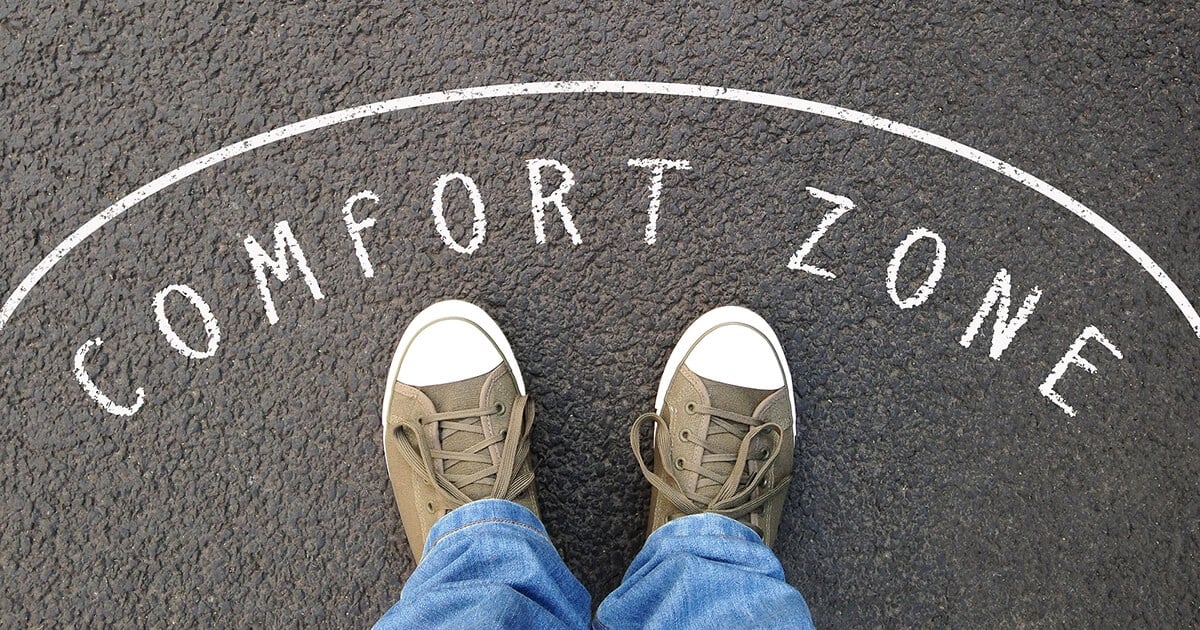What Does Comfort Zone Mean? Do We Always Have to Step Out of It?
I have a friend who works for a company that drains all of his energy. The manager treats him superiorly, gives him many tasks that were not agreed upon, and on top of that, he pays him a salary that is only a quarter of the amount of work he puts in.
In addition, he takes the trouble to travel two hours each way to work every day. Every time we sit together, he complains to me about his struggles. We have always stayed up late writing a letter of resignation for him, which he will throw in the face of this exploited person so that every morning my friend tears up the letter and rides the bus to work as usual.
When I ask him "Why," he responds that he lacks the capacity or energy to pursue alternative employment, carry out job interviews, demonstrate his aptitude for carrying out tasks, network with new coworkers, and other related tasks as a result of the new transition's consequences. As a result, he accepts his reality, closes the doors in the face of change, and returns to silence and endurance. However, every time, he runs out of energy and rewrites a new resignation request, which witnesses his demise the following morning.
What my friend struggles with is giving in to the familiar, predictable, routine, and repetitive comfort zone. What is the comfort zone when there are no new beginnings but only stability and rotation in place? Do we have to leave it every time? In this article, we'll explain it to you.

What is the Comfort Zone?
The idea of the comfort zone, also known as the safety zone, can be described as an idealized space that represents a psychological state in which the person feels secure and content with themself, their knowledge, their relationships, and their work. They are accustomed to all of these things, and they are unconcerned by any changes, so their life is a routine devoid of any difficulties or efforts to become better.
The comfort zone reduces a person's vulnerability to development because, according to life's rules, experiences shape a person's personality and develop their skills. Therefore, the comfort zone is seen as the enemy of human development because it exposes a person to the same events every day and prevents them from having new experiences, which prevents them from gaining new experiences or developing new skills that would help them become more aware and improve their capabilities.
A person who is constantly seeking skill development and self-improvement does not tend to stay in their comfort zone. They reject the fake contentment, stagnation, and surrender that comes with remaining in one's comfort zone. To become a more mature version of themselves, they immerse themselves in new challenges and push themselves to try new things.
We give the following as an illustration of the comfort zone: "Both John and Jack have an equal amount of savings in a bank that offers meager returns. John asks his friend to join him in an investment project where they will both make investments, promising him good returns if things go well. If his friend rejects the idea of starting the project, John considers improving his financial situation and considering borrowing, potentially exposing himself to financial hardship that he can live with in pursuit of a better future, and if his project is successful, he will begin to make money right away.
Jack, who declined to use the capital he deposited in the bank to enter the project and venture, prefers to stay at the financial level he has been at since he began working five years ago. The current financial situation and lifestyle for both Jack and John is their comfort zone. John who exposes himself to new experiences that may succeed or fail, breaks his comfort zone and gets out of it. Even if he did not gain the financial success he had hoped for, he undoubtedly gained life and knowledge experiences that Jack did not and will not have if he maintains the same mindset that forbids experimentation and prefers to stick to the familiar and secure surroundings.
We can better understand the idea of the safety zone or comfort zone by using this straightforward example. Leaving the comfort zone represents a test of new emotions and attitudes that are added to the balance of one's experiences. It is a stable state of feeling and behavior.

Stepping out of the comfort zone
There are numerous proverbs and articles that advocate stepping outside of one's comfort zone and condemn doing so because doing so prevents one from experiencing the meaning of success. This is furthered by the existence of social media platforms and people who claim to speak positively and inspire others, as well as those who either intentionally or unintentionally feel that their current circumstances prevent them from breaking the constraints that the comfort zone places on them.
The "influencers" on social media depict their moments of success and attach them to expressions of diligence and endeavor that have addressed their lives until they are now, so that every viewer feels useless, so they flog themselves every day with the whips of reprimand for something they do not know and did not do in the first place. But wait a minute! Is everyone on the same level of ambition? Are all humans equal in terms of qualifications, abilities, and opportunities? So, what's the point of all this motivation and striving for success if we're all clones of each other?
If we want to be reasonable, we must admit that staying in our comfort zones has both advantages and disadvantages. How, then? I'll respond to your question: Is eating a good or bad habit? You will respond that it is a positive behavior if the behavior is in response to the body's physiological need for food and that it is also a positive behavior if the food is nutritious and useful, but it will become a negative behavior if the behavior is emotional eating as a means of releasing emotions other than hunger.
It would also be bad if the food consumed contained a lot of artificial ingredients and preservatives. The same holds true for drinking, sleeping, and everything else in our lives, so stepping outside of your comfort zone has advantages that we'll go over in the section that follows.

Benefits of stepping out of the comfort zone
Exiting the comfort zone means opening up to new worlds; as a result, the advantages of doing so are shown in the material, emotional, or cognitive benefits one can obtain just by choosing to do so. It also gives one access to more profound parts of the soul and sheds light on previously unexplored areas of one's mind. Without these encounters, it would not have been lit.
Whoever chooses to travel uproots themselves from their roots that extend in their place and goes to plant them in another place, where there are equal chances for their growth and withering. In either case, they have accumulated a significant amount of knowledge and experiences that have evolved into lessons and experiences that the person who prefers to stay in their place and who has never exposed their roots to the air will never realize.
Increasing the human being's balance of experiences and knowledge as well as raising their level of awareness are two advantages of stepping out of the comfort zone. Although there may be undeniable material and social benefits from this exit, do we always need to step outside of our comfort zone?
Do we always need to step outside of our comfort zone?
Many people believe that working and traveling in Europe will bring them happiness and great success, but there are those who cherish their homes and prefer to live and work there. We've already discussed how social media influences our thoughts and, without us even realizing it, causes us to adopt goals other than our own. As a result, we tend to associate happiness with achieving things that do not truly make us happy on the inside. So, is staying where they like to stay in their comfort zone considered laziness?
Let's use a running race as an example. Some people are skilled runners who aspire to break records in their sport, making their victory in a race a source of happiness for them. Does this imply that everyone must succeed in a running race to feel happy? Obviously not.
Ambition requires those runners to set a higher record, so they make every effort to achieve it to feel happy again and enjoy it for a while until they set another goal for themselves. This certainly does not mean that people who live a simple and meek life are not happy because everyone on this planet tastes happiness from their own perspective, and they search for it in their own way, and some of them see that traveling the world is the pinnacle of happiness.
Leaving the comfort zone is optional, but, unfortunately, hidden talents remain trapped in the owner's laziness. No doubt stepping out of their comfort zone opens up new horizons for them, but staying in it allows them to live a slower life, allowing them to enjoy the pleasure of every action and the intimacy of every relationship in light of the frantic race against time. Also, one may reach their comfort zone after years of hard work and trouble, so should they leave it in search of the best just to leave and deny the characteristic of stagnation and laziness?
However, if the comfort zone is the desired life for one, regardless of what others think, it is logical to live there in peace and contentment. We do not have to leave our comfort zone just for the sake of leaving; the purpose of life is not to live with anxiety and apprehension. If a person is not happy, leaving the comfort zone is an inevitable duty. They should not be content with their misery and misery.
In summary
A job with a fair salary, a loving family, and a modest home may be the things that many people aspire to, but for a sizable portion of them, those same things may be a prison. Although everyone has a different idea of what their comfort zone is, the fundamental truth is that everyone wants to find comfort. If they are happy with what they have, let them live without worrying about what other people think. However, if what they want requires them to leave their current situation, they must rise and work hard to achieve their goals.